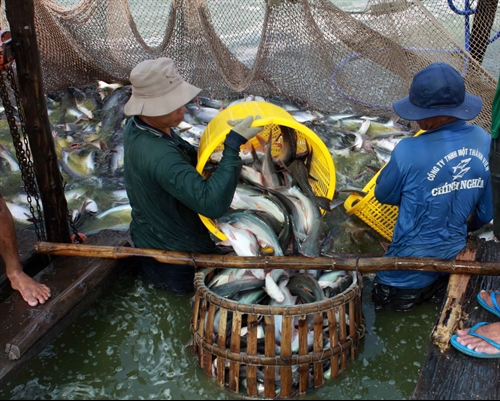 Economy
Economy

This year’s rural, agriculture and aquaculture census dates will be held July 1- 30 nationwide.
 |
| Farmers harvest tra fish in southern Đồng Tháp Province. This year’s rural, agriculture and aquaculture census, focusing on three main areas: agricultural forestry, salt and aquaculture production, and information on countryside circumstances and the lives of rural residents, will be held July 1- 30 nationwide.– VNA/VNS Photo Vũ Sinh |
HÀ NỘI (VNS) — This year’s rural, agriculture and aquaculture census dates will be held from July 1- 30 nationwide, said Nguyễn Bích Lâm, general director of the General Statistics Office and deputy head of the 2016 census’s steering committee.
Lâm said the census would focus on three main areas: agricultural forestry, salt and aquaculture production, and information on countryside circumstances and the lives of rural residents.
The first area would survey the number of production workshops and labourers, and assess the labour structure-production scale.
The second would provide data on the shift in rural economic structures and rural socio-economic infrastructure.
And the last would investigate living conditions among rural residents and job training in the countryside.
Nguyễn Thị Hương, director of the Agricultural-Forestry and Aquaculture Statistics Department, said this year’s census would investigate all households that participate in production workshops in cities and urban areas, as well as production units in military zones.
The Census aims to build up databases on agriculture and rural development, serving as a tool for long-term research.
The survey’s results also serve as an important and reliable source for establishing a database system for the General Statistics Office of Việt Nam.
The 2016 Census’s preliminary results will be finalised in December and the official results will be made public in the third quarter of 2017.
According to the Census’s steering committee, data on the economy and society - especially within rural, agriculture and aquaculture sectors - serves an indispensable tool for the Party, National Assembly, Government and other agencies while forming policies and development plans. — VNS




